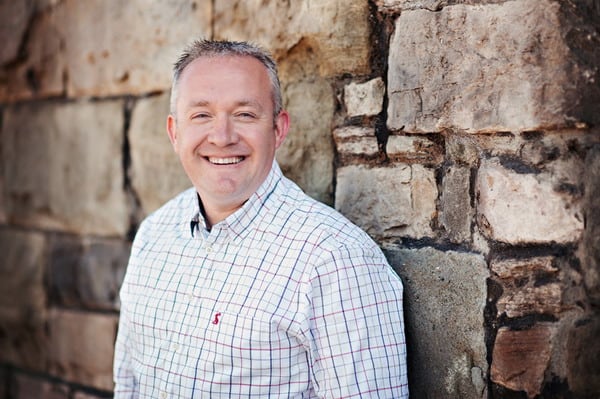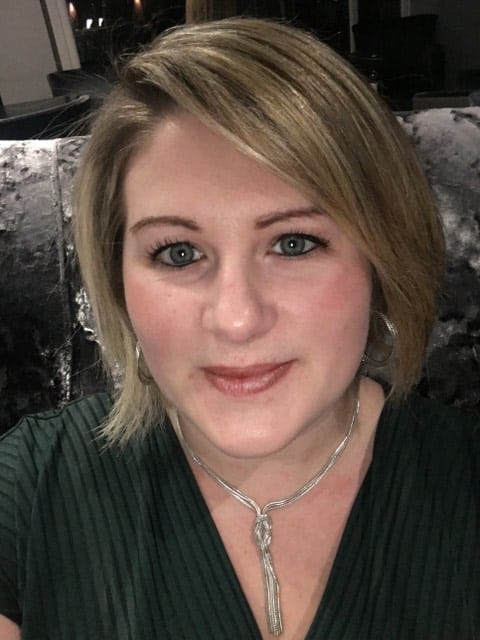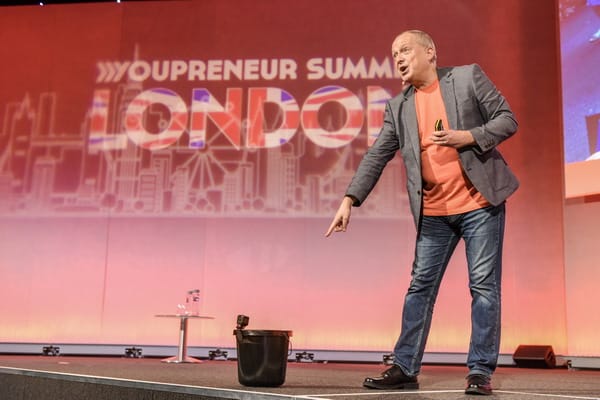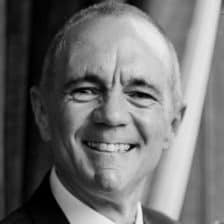What do the Money Gurus do with their own money?
Do they practice what they preach?
What money tips work for them, personally?

Well, I was wondering that too.
So I asked a few of my friends in the finance industry.
What did you ask them, David?
Here’s what I asked…
“What’s a brilliant but unusual money tip which has worked extremely well for you personally?”
I think you’ll love the money experts’ answers.
They’re…
- Practical
- Warm
- Helpful
- Human
- Realistic
So, simply ordered in the way the answers arrived, I present…
Personal Money Tips Used by the Money Experts
Martin Bamford
Alan Steel
Pete Matthew
Ramin Nakisa
Joy Sicilia Oliveros
Roger Edwards
Martin Bamford
Chartered Financial Planner, Author and Podcaster

The Secret of Low-Cost Heating
We had a wood-burning stove installed in our living room nearly a decade ago.
Living in a fairly rural area, I always look out for felled trees so I can stock my log store for free, and dramatically reduce the cost of heating our home.
A couple of years ago, our next-door neighbours had two huge oak trees cut down in their garden.
I asked the tree surgeons to roughly cut the trunks into piles in our garden.
For the next two months, I split the wood and stacked it to dry, as well as giving away about half of it to family and friends.
It’s resulted in about five years of fuel for our stove, which slashes our gas bill by two-thirds over the winter months and saves us a small fortune.
Ever since, my wife tells me off each time I eye up felled trees in the village, as she’s keen to have some of her garden back before I restock!
Martin’s Bio: Martin Bamford is a Chartered Financial Planner, Fellow of the Personal Finance Society, and personal finance author. As host of the Informed Choice Radio podcast, he has interviewed hundreds of personal finance experts to learn their best money secrets. When not running his award-winning firm of Chartered Financial Planners or growing his digital media agency, Martin swims long distances in lakes and rivers across the country. You can connect with him on Twitter @martinbamford and hear his podcast at icradio.co.uk.
Alan Steel
Asset Management Specialist

’72’ is the Key to Wealth
Over the 46 years since I became an IFA, nothing has changed my clients’ lives more than teaching them “The Rule of 72”.
The Rule of 72
Most people don’t understand money, but this basic rule is a eureka moment.
Put simply, I’ll ask what return after tax they’re getting on savings.
Answer ..1% pa.
Divide 1 into 72?
Answer 72.
That’s how long it will take to double their money.
0.1%? That’s 720 yrs. Best of luck.
If they can get 12% pa, it takes only 6 years.
The rest of our conversation goes from there.
It changes lives! Believe me!
And you CAN try this at home.
Alan’s Bio: Since January 1973 Alan has been practising and studying the secrets of how real wealth is created. He’s built a highly qualified team, written countless articles, appeared on radio, television, in national media, and is widely known as a leader in his field. You can connect with Alan on his website alansteel.com and on Twitter at asibiza1.
Pete Matthew
Chartered Financial Planner, Author and Podcaster

Having Two Current Accounts Simplifies Life
One of those obvious-when-you-know-it things that transformed my finances early on was the idea of having two current accounts, one for bills and one for spending.
The idea is simple. You get paid into your bills account.
You then add up all the regular bills that will come out by direct debit or that you’ll need to pay over the course of the month or however long till you get paid next.
Add to this the amount of any regular savings you are making.
Add all this up and leave that amount in the bills account.
Chances are that amount won’t change much from one month to the next.
Whatever is in excess of the amount you’ve put aside for bills and saving, you physically move to your spending account.
It’s from this account that you pay for the variable bills like food, fuel, entertainment etc. It’s this account that you budget carefully, making sure you stay within your means.
This has the benefit of making sure your bills are paid on time and means you only have to think about them once at the start of the month. it also reduces the list of things you need to actively budget for day to day.
You know that the amount you have in your spending account is the actual amount you have available to spend till next payday.
Simple and effective.
Pete’s Bio: Pete Matthew is a 21-year veteran Chartered Financial Planner and creator of the UK’s leading personal finance podcast, Meaningful Money. The weekly show has been downloaded nearly three million times and has spawned a book, The Meaningful Money Handbook, released in 2018. You can connect with Pete at @meaningfulmoney on Twitter or on his website Meaningful Money.
Ramin Nakisa
Finance & Investment Strategist and Author

Laziness is a Virtue for Investors
My best trade in my Stocks & Shares ISA was… not to trade.
Just before the Brexit Referendum, the accepted wisdom was that it would be rejected and sterling would rally.
I had lots of money in foreign funds so I was planning to sell these and move the money back into sterling funds.
I didn’t get around to it, the vote was for leave, sterling tanked and I made an instant gain on my foreign denominated funds!
Laziness is a virtue for investors, it’s usually best not to tinker with your portfolio.
Laziness is a virtue for investors.
Ramin’s Bio: Ramin founded PensionCraft in 2017 to help people become better investors by providing free educational investment videos on YouTube, courses on his website and an online community, funded via Patreon. Previously he worked in investment banking from 2001 to 2016 as a global asset allocation strategist, writing research and advising pension funds, hedge funds and insurance companies. Before becoming a strategist Ramin spent two years teaching finance in an investment bank, which he loved, and this helped him to learn how to explain finance in a non-mathematical way. Ramin has written two books about finance and investment: “A Financial Bestiary” which is meant for professional investors (fund managers and investment bank employees) and “Invest in Fear” which explains how to buy and sell volatility using exchange traded products. He has a degree and a doctorate in Physics and tutors A-Level Physics & Maths and GCSE Science & Maths in his spare time. You can watch Ramin’s videos on his YouTube channel and connect with him on his website, PensionCraft.com.
Joy Sicilia Oliveros
Certified Accountant

Learn From Your Actual Financial Activity
My key advice on all things financial, be that personal or business, is to budget and learn from your actual financial activity.
By budgeting ALL income and ALL expense you ensure that you can afford what you’re planning to spend, and can make the necessary cutbacks where that isn’t the case.
Sometimes, seeing your actual spending accumulated over a month can be an eye-opener (eg £3 coffee per day, amounts to £63 per month).
The real key is to learn from your actual financial activity.
If your budget says £100 food shop per week and you regularly spend £150 then you need to either adjust your budget to reflect that or cut back on spends.
Joy’s Bio: Joy has been a Certified Accountant since 2010, having worked for PWC for 7 years, across various industries for 5 years, before setting up her own accounting practices, assisting sole traders and small companies with their accounting and taxation requirements. You can connect with Joy on her Facebook Page, JSO Accounting.
Roger Edwards
Marketing Professional
Formerly Marketing Director of Several UK Financial Services Brands

From Piggy Bank to £100 Glass Jar
This staggeringly simple money tip dates back to my Grandpa buying me a piggy bank when I was a child.
Every day I dump whatever change I have in my pockets (anything smaller than a pound coin) into a big glass jar.
Then every 3 months I take the jar to Tesco and tip all the coins into the clever machine that counts it all up and gives you a voucher.
Usually I end up with up to a £100 a time.
Plus there’s something satisfying about that torrent of coins cascading into the machine.
Roger’s Bio: An experienced marketing professional helping businesses with their marketing strategy, content, and social media, Roger clocked up many years in the ‘big corporate’ world as marketing director of several UK financial services brands before getting out of all that and starting his own consultancy. You can connect with Roger on Twitter at @Roger_Edwards.
What About You, David?
So what about you, David?
That’s what my friend and mentor, Chris Marr of The Content Marketing Academy, said when he read this blog post.
“Where’s your money tip?”
“Well, I’m not a financial expert.”
“Yes, but you do have a lot of experience to offer.”
So I thought about it – and here it is.
Me And The FIRETU Movement
You’ve probably heard about the FIRE Movement.
It stands for Financial Independence, Retire Early.
Well… I suppose I belong to the FIRETU Movement.
What’s that, David?
It’s Financial Independence, Retire Earlier Than Usual.
Yes, I took early retirement at age 57.
How did you do that, David?
Two secrets:
I began saving into a pension at age 18. Every time I got a pay rise, I increased my pension contribution very slightly, taking advantage of the power of compounding. My pension pots carried on growing whilst I slept.
We always spent less than we earned. Of course, we had to spend – do you realise how much it costs to raise children! And we made sure we had a happy Christmas, annual holidays, and so on. But the little things all added up: whilst friends and colleagues were buying lunch and speciality coffee in the staff restaurant, I was making my own healthy lunch and brewing cups of tea. We never allowed ourselves to get into debt (except of course for taking out a mortgage).
And at age 57, I was able to retire from employment to do what I love.
It was so exciting, I even did a talk about it!
And here’s a more recent blog post I wrote: David’s Guide to FIRETU.
I’m busier now than I ever was. But I enjoy every single day!

Thank You
I’d like to say a huge thank you to all these wonderful people who found time out of their busy schedules to answer my question.
I knew they were all busy people, so I was incredibly grateful and thrilled when the replies began to come in.
I’ve gained from the personal stories and insights.
And I’ve discovered that there’s so more to learn about money.
What better place than from the professionals.
Have another read. And why not reach out to these money experts to say thank you, and follow them on social media.
Thanks again, Martin, Alan, Pete, Ramin, Joy and Roger.
Here's what 6 financial experts said when asked... What’s a brilliant but unusual money tip which has worked extremely well for you personally? #money #Finance #financialadvisor #invest #investing Share on XOver To You
What’s a brilliant but unusual money tip which has worked extremely well for you personally?
Share it with us in the comments box below.
More Like This
Here’s a similar article from when I asked six successful church leaders about their success habits.







Leave a Reply